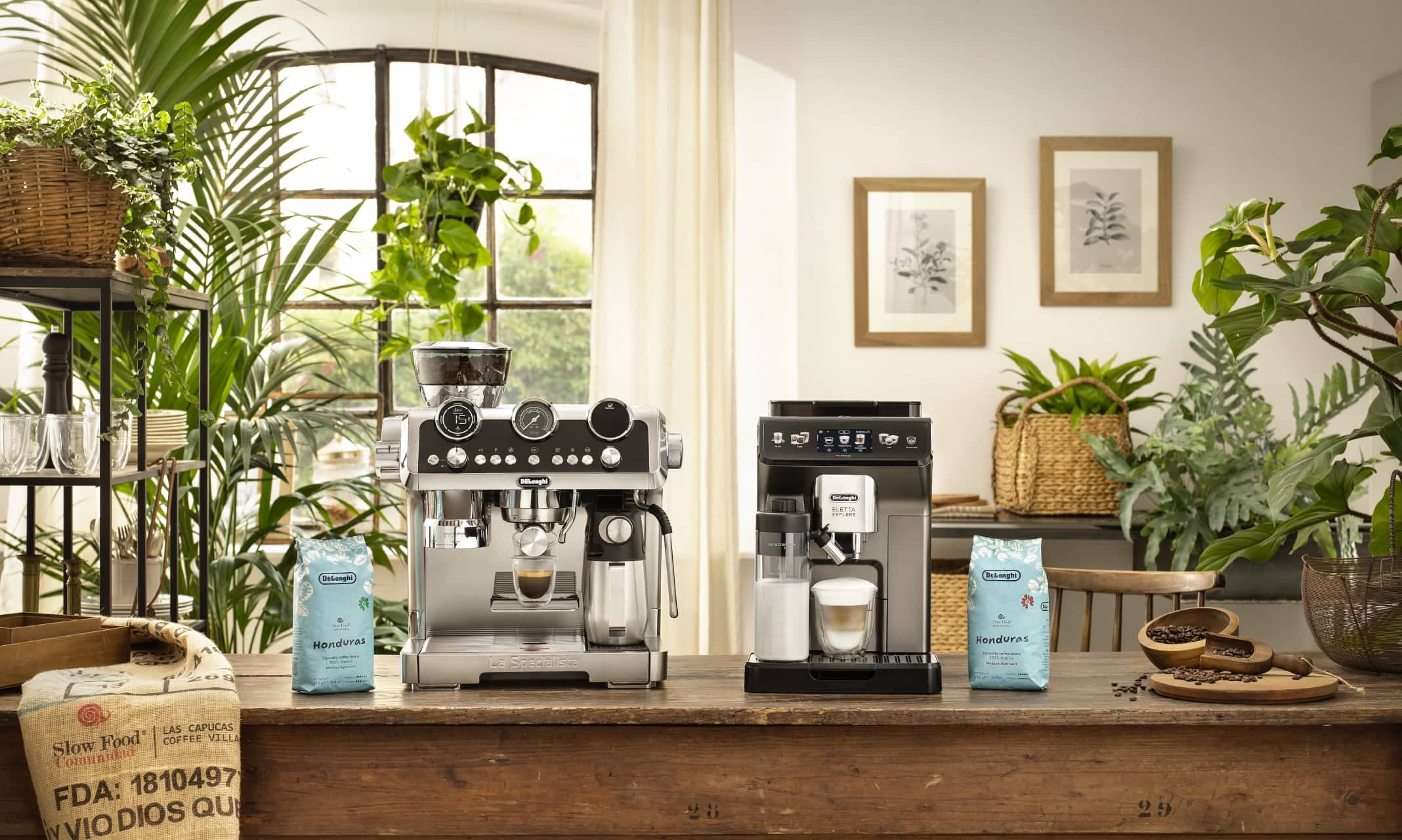De’Longhi releases its first Speciality Coffee beans in partnership with the Slow Food Coffee Coalition, harvested beside a UNESCO-protected park near Rio Colorado.
Harvested on agroecologically managed farms, the beans feature a traceability system that tracks all facets of coffee production, a process that starts with beans. International Coffee expert Andrej Godina – an authorised Specialty Coffee Association (SCA) trainer – explains how De’Longhi selected the best batches of beans for production.
The batch of Honduras Specialty Coffee beans is produced on the plantation and harvested using the “picking” method, which consists of expert harvesters manually selecting the best ripe fruit. The processing of the coffee involves pulping the fruit within the first six hours, followed by a short period of fermentation of the cherry and slow drying.
“At the end of the coffee harvest, all coffee beans in the community are tasted with the cupping method,” says Godina. Per the tasting protocol established by the SCA, the coffee beans should be lightly roasted, coarsely ground, and steeped in hot water to brew in cups ready for being tasted and evaluated to determine batch consistency. “A tasting session was organized to select the best lots for the production,” Godina says.
The coffee produced in partnership with the Slow Food Coffee Coalition was awarded a SCA cupping score that exceeded 80 points and therefore was considered Specialty Coffee.
Umami Area Honduras S.A. de C.V., a local profit company with an international shareholder party, initiated the creation of the community. The group’s values align with those of the Slow Food Coffee Coalition, aiming to run sustainable coffee plantation management that prioritises environmental, quality, organic, social, financial, diversification, and agroforestry concerns. The shareholders represent the value chain that comprises the entire production process, from seedling, growing, harvesting, and shipping to roasters, buyers, and, ultimately, the baristas.
The Umami Area Honduras project arose thanks to 25 cooperating partners willing to prove that high-quality coffee production can be sustainable.
